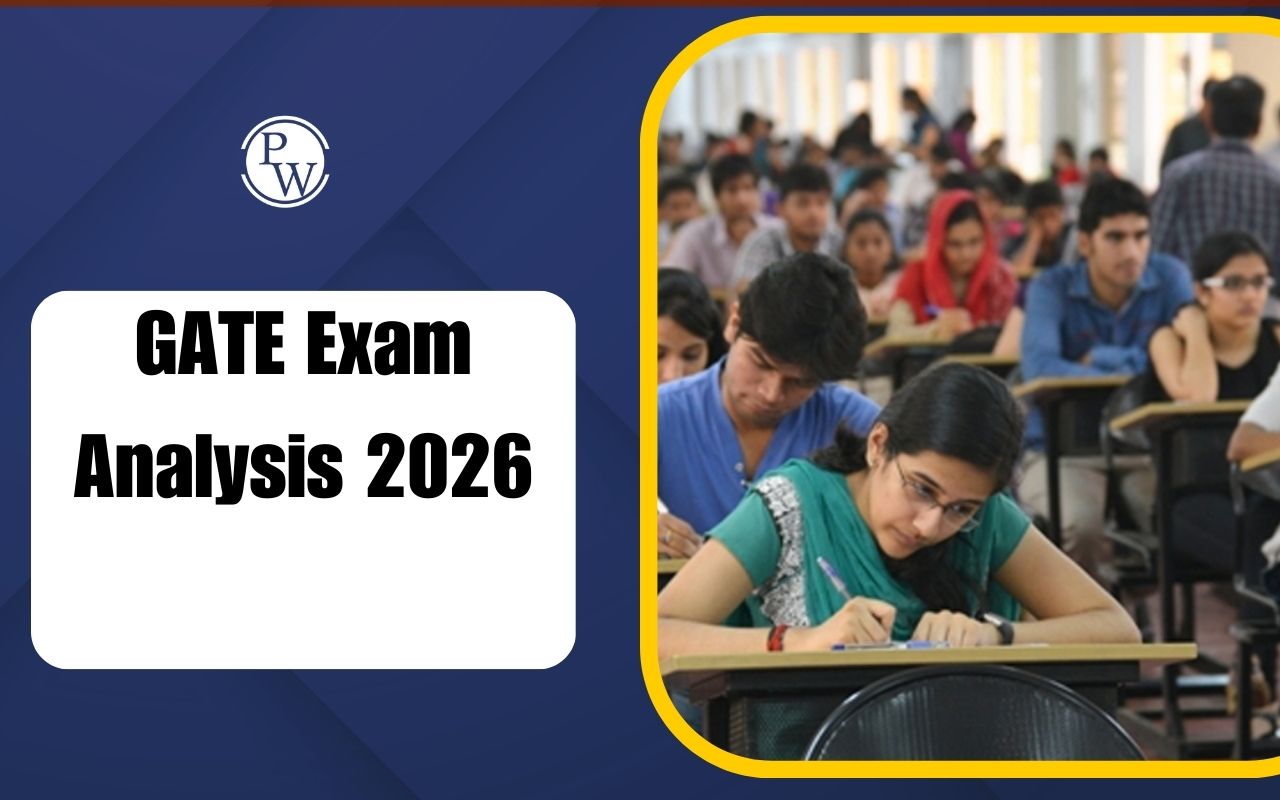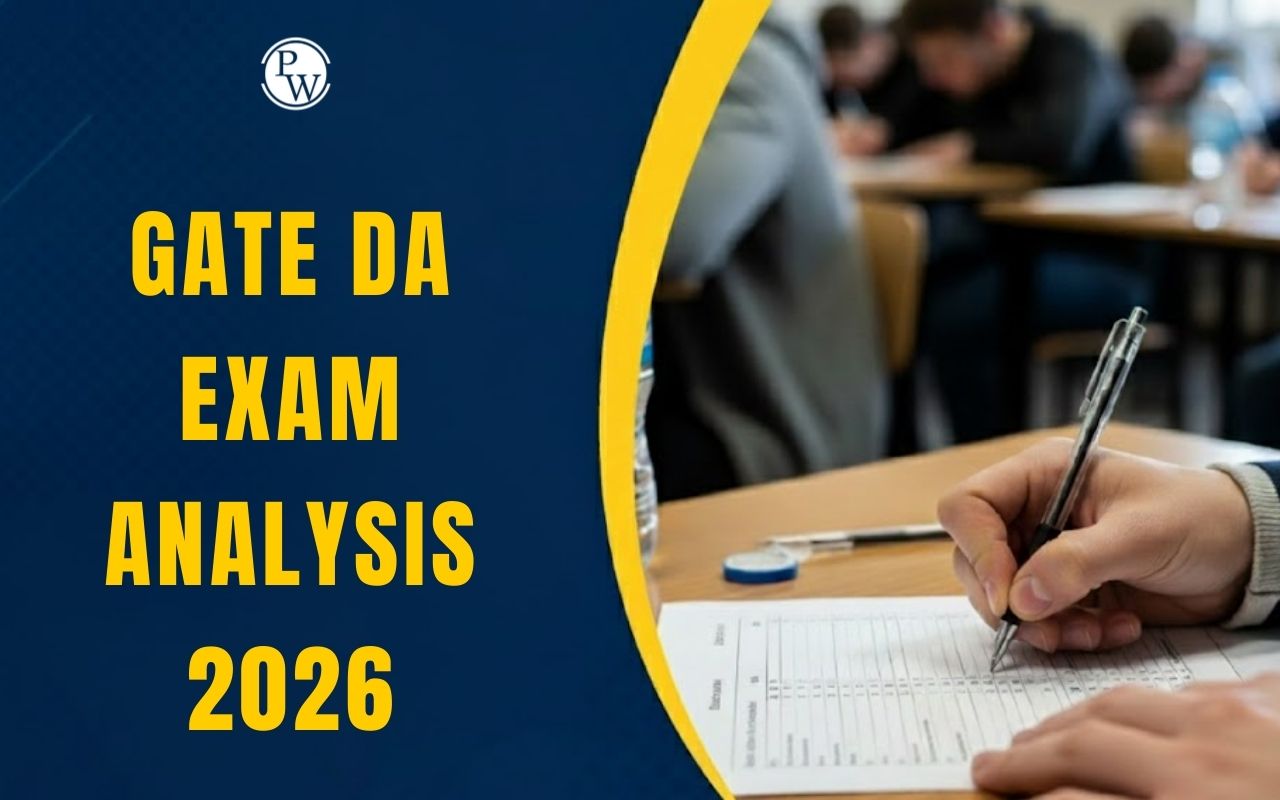
Mining Engineer Salary: The average mining engineer salary in India is ₹1,26,665 per month. Mining engineering is among the oldest engineering disciplines that focuses on extracting minerals from the earth using advanced techniques and technologies. Professionals in this field, known as mining engineers, oversee mineral extraction and mine development, and prioritise safety measures. Additionally, mining engineers oversee the overall development of mines and are responsible for implementing safety measures in and around mining areas.
Professionals in this field find employment opportunities in Public Sector Undertakings (PSUs), government organisations, and private companies. Their responsibilities extend beyond mineral extraction to encompass the overall management and operation of the mining process. Interested candidates can check the complete Mining engineer salary structure in the article below.
Mining Engineer Salary in India 2023 Overview
Salaries for Indian mining engineers fluctuate, based on diverse factors. Initially, junior engineers typically make around ₹ 3-5 lakh per year. As they gain experience, mid-level engineers can secure salaries ranging from ₹ 6-10 lakh annually. Senior engineers, distinguished by substantial experience, can demand ₹ 12-20 lakh or more each year.
The mining engineering profession is demanding, often requiring work in challenging and remote environments, which can influence compensation. India's is focusing greatly on:
- Infrastructure development
- Mineral resources
- Environmental concerns
Hence, there's a steady demand for skilled mining engineers, contributing to competitive salaries. Check the table below for more details:
|
Mining Engineer Salary in India 2023 Overview |
|
| Factors | Details |
| Average Salary | ₹1,26,665 per month |
| Salary Range | ₹1.0 Lakhs to ₹11.0 Lakhs per year |
| Top Paying Cities | Mumbai, Maharashtra; Chennai, Tamil Nadu; Bengaluru, Karnataka; Bhubaneshwar, Orissa; Ranchi, Jharkhand |
| Top Paying Companies | Star Trace Pvt Ltd, Tata Projects |
| Entry-Level Salary | ₹4,50,000 per year |
| Mid-Level Salary | ₹7,25,000 per year |
| Senior-Level Salary | ₹25,00,000 per year |
| Job Outlook | The job outlook for mining engineers is expected to grow at a rate of 9% from 2020 to 2030, faster than the average for all occupations. |
| Education Requirements | Mining engineers typically need a bachelor's degree in mining engineering from an accredited program. Some employers may prefer candidates with a master's degree. |
Mining Engineer Salary in India 2023
The average salary for a mining engineer in India is ₹1,26,665 per month, according to Glassdoor. The salary range for mining engineers in India is typically between ₹89,520 and ₹3,35,702 per month, depending on experience, skills, and location.
Mining engineers with more experience and specialised skills can typically earn higher salaries. For example, a mining engineer with 10+ years of experience and a master's degree in mining engineering can expect to earn a salary of ₹2,00,000+ per month. Check the table below for more details:
|
Mining Engineer Salary in India 2023 |
||
| Experience Level | Salary Range (₹) | Average Salary (₹) |
| Entry-Level | 4.5 Lakhs - 7.5 Lakhs | 6 Lakhs |
| Early Career | 7.5 Lakhs - 10 Lakhs | 8.75 Lakhs |
| Mid Career | 10 Lakhs - 15 Lakhs | 12.5 Lakhs |
| Late Career | 15 Lakhs - 20 Lakhs | 17.5 Lakhs |
| Experienced | 20 Lakhs - 25 Lakhs | 22.5 Lakhs |
Mining Engineer Salary in IITs 2023
The Mining Engineering BTech program empowers students to design, plan, excavate minerals, oversee maintenance, ensure air quality, and handle hazardous gases in mines. They also safely extract resources like petroleum and minerals. Graduates from top schools like IITs and NITs usually land better job opportunities compared to those from other mining engineering colleges.
Below, you can find information regarding the placement packages at the leading mining engineering colleges.
|
Mining Engineer Salary in IITs 2023 |
|
| Institutes | Placement Package |
| Indian Institute Of Technology, Kharagpur | INR 15 LPA |
| Indian Institute of Technology (BHU), Varanasi | INR 10 LPA |
| Indian Institute of Technology, Dhanbad | INR 15.5 LPA |
| National Institute of Technology, Surathkal | INR 14.15 LPA |
| National Institute of Technology, Rourkela | INR 6.5 LPA |
| Indian Institute of Engineering Science and Technology Shibpur (IIEST Shibpur) | INR 6.5 LPA |
| Visvesvaraya National Institute of Technology (VNIT), Nagpur | INR 7 LPA |
| Visvesvaraya Technological University [VTU], Belgaum | INR 2.6 LPA |
| Jawaharlal Nehru Technological University [JNTUH], Hyderabad | INR 4 LPA |
| National Institute of Technology (NIT), Raipur | INR 4.18 LPA |
Mining Engineer Job Profile 2023
A mining engineer is a highly specialised expert tasked with the responsibility of conceiving, executing, and overseeing the extraction of valuable minerals and resources from the Earth. This professional role demands a unique combination of technical proficiency, project management acumen, and an in-depth grasp of geology, engineering, and environmental considerations.
Primary Responsibilities
- Resource Assessment: Mining engineers commence their projects by conducting geological surveys and appraising mineral resources. They employ various tools and technologies to locate and estimate the quantity and quality of mineral deposits.
- Project Planning: After identifying potential resources, mining engineers formulate intricate plans for extraction, taking into account factors such as deposit depth, location, accessibility, and environmental impact. This phase may entail the selection of appropriate mining methods (e.g., open-pit or underground) and equipment.
- Environmental Compliance: Adherence to environmental regulations and minimising negative environmental impacts is imperative. Mining engineers may devise strategies for waste management, land reclamation, and water conservation.
- Safety and Risk Management: Safety is paramount in mining operations. Engineers are entrusted with the creation and enforcement of safety protocols, conducting risk assessments, and implementing measures to safeguard workers and the environment.
- Financial Planning and Cost Control : Efficient management of mining operations is crucial. Engineers are accountable for formulating and supervising budgets, cost control, and optimising resource utilisation.
- Supervision and Leadership : Mining engineers oversee daily operations, including the supervision of personnel, equipment, and resources. They are involved in the recruitment, training, and management of a diverse workforce.
- Technology and Innovation : Keeping abreast of the latest technological advancements is essential. Mining engineers often incorporate automation, remote sensing, and data analytics to enhance efficiency and safety.
- Community Relations: Establishing and nurturing positive relationships with local communities is vital. Mining engineers engage in dialogues with stakeholders to address concerns and promote cooperation.
Prerequisites and Educational Requirements
- Bachelor's Degree: Typically, mining engineers hold a bachelor's degree in mining engineering, geological engineering, or a related field. This educational foundation imparts a strong grasp of mining principles and technologies.
- Licensure: In many countries, mining engineers are obligated to acquire a professional engineering licence, which involves passing an examination and meeting experience criteria.
- Continuing Education: Staying abreast of technological advancements and regulatory changes is essential. Many mining engineers pursue postgraduate education or participate in workshops and conferences.
Career Prospects
Mining engineers have a variety of career avenues within the mining and mineral exploration sectors, with roles evolving as they accumulate experience. Potential career prospects include:
- Mining Project Manager: Overseeing the planning and execution of mining projects, often involving larger teams and more intricate operations.
- Consulting: Offering expert guidance to mining companies, governments, and environmental agencies on various facets of mining and resource management.
- Research and Development: Engaging in academia or industry to devise novel mining technologies, methods, and environmentally sustainable practices.
- Environmental Management: Concentrating on mitigating the environmental impact of mining operations and ensuring compliance with regulations.
- Health and Safety Management: Specialising in the creation and enforcement of safety protocols to safeguard workers and the environment.
Challenges
Mining engineers grapple with several challenges in their profession, including:
- Environmental Considerations: Striking a balance between the economic benefits of mining and environmental preservation is a persistent challenge.
- Safety: Maintaining a secure work environment in often perilous conditions remains a primary concern.
- Resource Depletion: As easily accessible resources diminish, mining engineers must devise innovative approaches to access deeper or less accessible deposits.
- Regulatory Compliance: Navigating intricate and evolving regulations adds complexity to mining projects.
- Social Responsibility: Addressing concerns and conflicts with local communities and ensuring responsible mining practices is a continuous challenge.
Mining Engineer Career Growth 2023
A career in mining engineering offers a range of avenues for professional growth and progression in the realm of mining and mineral resource management. Mining engineers hold a pivotal role in the extraction and oversight of precious Earth resources, rendering their career development simultaneously gratifying and demanding.
Educational Foundation and Entry-Level Roles
Initiating a career in mining engineering typically commences with the attainment of a bachelor's degree in mining engineering or a closely related discipline. Essential coursework encompasses subjects like geology, mining operations, and engineering principles.
Numerous graduates embark on their careers as junior mining engineers or in introductory positions such as mine surveyors or production engineers, where they accumulate practical experience within the mining industry.
Accumulating Practical Experience
During the initial stages of their careers, mining engineers often engage in fieldwork to acquire hands-on expertise in mine planning, equipment operation, and safety protocols.
They are frequently involved in activities like designing mining layouts, supervising production, and ensuring adherence to environmental and safety regulations.
Specialisation
As they accumulate experience, mining engineers may opt to specialise in specific domains of mining, such as mineral processing, geotechnical engineering, or mine planning. Specialisation can broaden their scope for career advancement.
Mid-Level Roles
With several years of experience under their belt, mining engineers can ascend to mid-level positions, such as project managers, production managers, or mine superintendents. In these roles, they are entrusted with overseeing larger-scale operations, managing teams, and ensuring the implementation of efficient and safe mining procedures.
Advanced Positions
Experienced mining engineers can progress to advanced positions like mine managers, directors of mining operations, or executive roles within mining firms. These positions involve strategic planning, decision-making, and often entail a higher degree of responsibility and leadership.
Entrepreneurship
Some mining engineers may opt to establish their own mining consulting firms, service companies, or even initiate their mining operations, venturing into entrepreneurship within the industry.
Global Opportunities
The mining sector frequently offers avenues for international employment, particularly in countries with substantial mining activities. Mining engineers can explore careers abroad, accruing valuable cross-cultural experience along the way.
Mining Engineer Promotion in India 2023
A promotion in the field of mining engineering signifies a significant career advancement marked by increased responsibilities, authority, and compensation within the mining sector. Mining engineers play a critical role in extracting and processing valuable minerals, metals, and natural resources from the Earth's crust. A promotion in this domain typically involves transitioning to a different position with expanded duties, leadership responsibilities, and decision-making authority.
Roles and Responsibilities
The precise roles and responsibilities linked to a mining engineer's promotion can vary based on the company, industry sector, and location. Nevertheless, a customary career evolution for a mining engineer might encompass the following components:
Entry-Level Mining Engineer
- Assisting in designing mining operations.
- Conducting feasibility studies and evaluating risks.
- Monitoring production processes and equipment.
- Ensuring adherence to safety and environmental standards.
- Supervising small teams of engineers and technicians.
- Overseeing day-to-day mining activities.
- Formulating mine plans and optimising production.
- Contributing to cost reduction and operational efficiency enhancements.
- Leading large teams and departments.
- Making strategic decisions regarding mine development.
- Crafting long-term mining strategies.
- Managing budgets and controlling expenses.
- Addressing complex environmental and regulatory concerns.
As mining engineers advance further in their careers, they may transition into managerial or executive positions such as Mine Manager, General Manager, or Chief Operations Officer, where they hold overarching responsibility for a mine or mining company's operations.
Qualifications and Education
Mining engineers typically commence their careers with a bachelor's degree in mining engineering or a related field. As they progress professionally, they may pursue additional education, such as a master's degree or an MBA, to augment their management and leadership competencies. Continuous professional development and staying updated on industry trends and technological advancements are crucial for career advancement.
Experience
Promotions in the mining industry are often contingent on accumulating pertinent experience. The number of years a mining engineer has worked, the diversity of projects they've been involved in, and the complexity of their undertakings all contribute to their eligibility for promotion.
Professional Certification
Many mining engineers seek professional certification through organisations like the Society for Mining, Metallurgy & Exploration (SME) or the Professional Engineers (PE) licence. These certifications can serve as prerequisites for specific positions and bolster promotion prospects.
Network and Industry Involvement
Active participation in industry associations, networking, and the cultivation of a professional reputation can create opportunities for career progression. Visibility in the industry through publications, presentations, and engagement in industry events can help mining engineers stand out.
Performance and Achievements
Demonstrating outstanding performance, innovation, and the ability to solve complex problems can expedite a mining engineer's career trajectory. Consistently meeting or surpassing production targets, upholding high safety standards, and reducing operational costs can carry significant weight.
Mentoring and Leadership Skills
As mining engineers ascend to senior roles, their capacity to mentor and lead teams becomes paramount. Leadership and interpersonal abilities are often assessed when evaluating candidates for promotions.
Company Culture and Opportunities
The policies, culture, and opportunities within a mining company or organisation play a substantial role in shaping the timing and criteria for promotions. Different companies may employ diverse promotion structures and standards.
Geographic Location and Market Conditions
The demand for specific minerals and metals, as well as the location of mining operations, can influence promotion prospects. Opportunities may be more abundant in regions with active mining industries.
Compensation and Benefits
Promotions are frequently accompanied by enhanced compensation, encompassing salary increments, bonuses, and additional benefits. Elevated positions in the mining industry typically offer more competitive compensation packages.
Factors Affecting Mining Engineer Salary in India 2023
Mining engineers extract valuable minerals and resources from the Earth, vital for the global economy. Various factors influence their salaries.
Education and Experience
To become a mining engineer, a bachelor's degree in mining engineering or related fields is typically required. Those with advanced degrees or certifications can command higher pay. Experience is another key factor; seasoned engineers earn more than their less-experienced peers.
Geographic Location
Location plays a big role in salaries. Regions with a strong mining industry or booming projects tend to offer higher pay.
Type of Mining Operation
The type of mining operation also matters. Surface mining, like open-pit mining, can lead to different salaries compared to underground mining. Specialised sectors, such as oil and gas extraction or metallurgical processing, have distinct compensation structures.
Company Size and Reputation
The size and reputation of the mining company also play a role in determining salary. Large, multinational mining corporations often offer higher salaries than smaller, local firms. Additionally, companies with strong safety records and a commitment to sustainable practices may provide more attractive compensation packages to attract top talent.
Skills and Specialization
Mining engineers possessing specialised skills or expertise in areas such as geotechnical engineering, environmental compliance, automation, or project management may command higher salaries. These specialised roles often require additional training and provide unique value to mining operations.
Market Conditions
The state of the mining industry and commodity prices can significantly impact salaries. When mineral prices are high, and demand is strong, mining engineers may enjoy higher salaries, bonuses, and incentives. Conversely, economic downturns can result in pay cuts and job insecurity.
Regulatory and Safety Compliance
Engineers involved in ensuring regulatory compliance and safety measures within mining operations often receive competitive salaries due to the critical nature of their work. This is particularly true in regions with strict environmental and safety regulations.
Union Membership
Unionised mining engineers may receive more favourable compensation packages, job security, and benefits compared to their non-unionized counterparts. Union agreements can exert a substantial influence on salaries and working conditions.
Gender and Diversity
Unfortunately, disparities in mining engineer salaries based on gender and other diversity factors persist in the industry. Ongoing efforts to promote diversity and inclusion aim to rectify these disparities and foster more equitable compensation for all professionals in the field.
| Civil Engineers Salary | Mechanical Engineer Salary |
| NPCIL Salary | Software Engineer Salary |
Mining Engineer Salary FAQs










